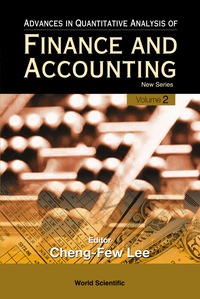Montoure Company uses a perpetual Inventory system. It entered into the following calendar-year purchases and sales transactions, Units sold at Retail Unita Acquired at Coat 600 units @ $35 per unit 300 units@ $32 per unit 150 units $20 per unit Date Activities Jan. 1 Beginning inventory Eob. 10 Purchase Mar. 13 Purchase Mar. 15 Sales Aug. 21 Purchase Sept. 5 Purchase Sept. 10 Sales Totals 725 unitse $80 per unit 190 units $40 per unit 540 units @ $37 per unit 730 units @ $80 per unit 1,455 units 1,780 units Required: 1. Compute cost of goods available for sale and the number of units available for sale. 2. Compute the number of units in ending inventory 3. Compute the cost assigned to ending inventory using (a) FIFO, (6) LIFO. (c) weighted average, and (c) specific Identification. For specific identification, units sold consist of 600 units from beginning inventory, 200 from the February 10 purchase, 150 from the March 13 purchase, 140 from the August 21 purchase, and 365 from the September 5 purchase. (Round your average cost per unit to 2 decimal places.) 4. Compute gross profit earned by the company for each of the four costing methods. (Round your average cost per unit to 2 decimal places.) Complete this question by entering your answers in the tabs below. Required 1 Required 2 Required 3 Required 4 Compute the cost assigned to ending Inventory using (a) FIFO, (O) LIFO, (C) weighted average, and (c) specific Identification For specific identification, units sold consist of 600 units from beginning inventory, 200 from the February 10 purchase, 150 from the March 13 purchase, 140 from the August 21 purchase, and 365 from the September 5 purchase. (Round your average cost per unit to 2 decimal places.) Show less Ending Inventory () FIFO (b) LIFO c) Weighted average (d) Specific identification Montoure Company uses a perpetual Inventory system. It entered into the following calendar-year purchases and sales transactions Units sold at Retail Date Activities Jan. 1 Beginning inventory Feb. 10 Purchase Mar. 13 Purchase Mar. 15 Sales Aug. 21 Purchase Sept. 5 Purchase Sept. 10 Sales Totals Units Acquired at Cost 600 unita e $35 per unit 300 units $32 per unit 150 unito & $20 per unit 190 units $40 per unit 540 unitse $37 per unit 725 unitae $80 per unit 1,780 units 730 unita e 580 per unit 1,455 unit: Required: 1. Compute cost of goods available for sale and the number of units available for sale. 2. Compute the number of units in ending inventory 3. Compute the cost assigned to ending inventory using (6) FIFO. (6) LIFO, (c) weighted average, and (c) specific identification. For specific identification, units sold consist of 600 units from beginning inventory, 200 from the February 10 purchase, 150 from the March 13 purchase, 140 from the August 21 purchase, and 365 from the September 5 purchase. (Round your average cost per unit to 2 decimal places.) 4. Compute gross profit earned by the company for each of the four costing methods. (Round your average cost per unit to 2 decimal places.) Complete this question by entering your answers in the tabs below. Required: Required 2 Required 3 Required 4 Compute gross profit earned by the company for each of the four costing methods. (Round your average cost per unit to 2 decimal places.) FIFO LIFO Weighted Average Specific Identification Sales Less Cost of goods sold Gross profit S 0$ 0 $ 05 0








